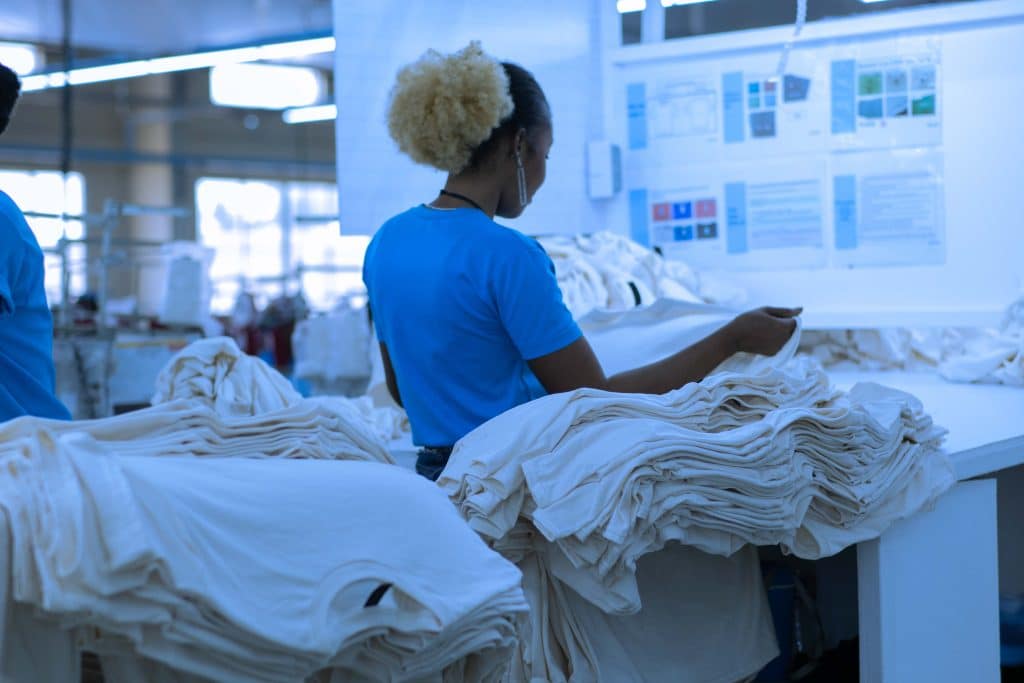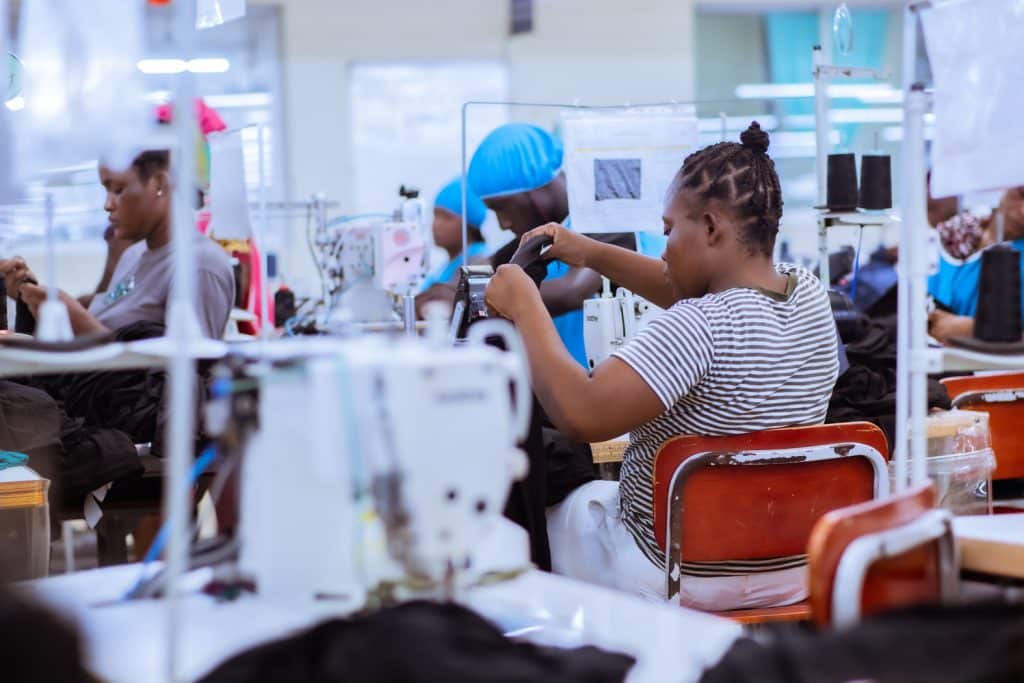The humanitarian crisis in Haiti has not spared the garment industry. As businesses strive to continue operations, workers likewise struggle to pursue their livelihoods in the face of compromised safety.
Haiti’s garment industry has, until recently, been a cause for optimism in a country that has grappled with political and social unrest and natural disasters for decades. Preferential trade agreements established with the United States between 2006 and 2010 gave the industry a strong foundation to develop a growing garment industry, offering good quality jobs to tens of thousands of workers – most of them women.
Now, this progress is in jeopardy. Better Work’s most recent country report reveals an industry dealing with a breakdown in the rule of law, causing factory closures, job losses, and plummeting export revenue.
What has been the human impact of this crisis?
Better Work spoke to workers and managers from the industry in two garment manufacturing hubs to ask them how their personal and working lives had been affected.
Living under threat
For Grace Marcel*, a quality control inspector and mother of three, the crisis hits home. Living and working in Delmas, near Port au Prince, her family’s well-being hinges on her ability to work.
“The situation is stressful for my personal and family life,” Grace says. “When the factory can’t operate, or I can’t commute, I lose income, which affects our ability to meet basic needs. My eldest finished high school two years ago, but we can’t afford university fees.”
Fear of violence is ever-present. “I haven’t visited my family in the province since 2021 because the roads are risky with armed gangs,” she explains. “Transportation costs have exploded, making it difficult to send them goods.”
Clara Joseph*, a sewing machine operator in her twenties also from Delmas, faces similar fears. “It’s difficult and risky to commute to work,” she says. “Any disruption in public transport causes me to miss workdays. As a woman, I have to be more careful and limit my movements to avoid violence.”
Her aspirations are on hold. “I wish to open a small clothing store and beauty salon someday,” Clara admits. “But starting a business in this context seems impossible.”

Factories under pressure
Sophie Lavalle*, an HR manager with 15 years in the apparel industry, oversees a factory in Tabarre, Port-au-Prince, employing 1,709 workers, 56 per cent of whom are women.
“Our factory couldn’t operate normally from February to July 2024,” Sophie explains. “We experienced significant increases in operational costs for essential products and goods like fuel, transportation, and security services.” She reports that many workers were afraid to commute due to insecurity. “We lost revenues and struggled to meet our operational costs and guarantee salaries.”
Maintaining morale has become an uphill battle. “Keeping workers motivated became a big challenge,” she notes. “The loss of income affected their morale, creating frustration and job uncertainty.”
Despite these hurdles, Sophie says her company received support from their primary buyer. “Fortunately, our buyer showed great understanding,” she says. “We maintained close communication on how we were adapting, which helped strengthen our relationship.”
Managers are not immune to the crisis. Estelle Raymond, assistant HR manager at a prominent apparel factory in Ouanaminthe, relocated from Port-au-Prince due to escalating insecurity.
“The country’s context has a domino effect on our workers and, hence, on our factory’s operations,” Estelle explains. “Disruptions in transportation and lack of public health services hinder workers’ ability to commute regularly.”

Signs of resilience
To mitigate these challenges, her factory has implemented supportive measures. “We allow delayed start times and are lenient with late arrivals,” she says. “We offer seasonal incentives and cover medical costs at the local centre to help with health expenses.”
Roseline Desir*, HR manager at a factory in a free trade zone, reports on similar efforts from her management, “Since last year, we had to put workers on multiple temporary suspensions. However, we looked for ways to support them … distributing home and kitchen goods and food supplies to cope with their concerns around essential living needs and expenses.”
Factories strive to support their workers within their means, and organizations like Better Work Haiti continue to offer guidance.
“We received Better Work Haiti services as usual,” says Sophie. “Our communication intensified as we shared experiences during difficult times. We participated in training on workplace communication and received virtual advisory services.”
Estelle acknowledges their support: “They also helped address issues with dismissed workers.”

An uncertain future
Yet, uncertainty looms large. “I fear a violent gang invasion, because the factory area is surrounded by gang territories,” Sophie shares. “I hope the Kenyan troops of the Multinational Security Support Mission can support the Haitian Police to prevent that.”
Estelle expresses deep concern: “The insecurity is destroying the country, causing operations to stop and the best professionals to flee. That’s why I’m in the Northeast. I fear the worst if this persists longer.”
All the women interviewed emphasize the urgent need for security and effective governance.
“The stability of the sector is bound to the country’s socio-political and security stability,” says Sophie. “We need better leaders and competent authorities capable of ensuring the proper functioning of the state.”
Grace stresses urgency: “Authorities must act to restore security. The cost of living will decrease if activities return to normal. The current insecurity is the most detrimental period in our lives.”
Clara adds, “The government must restore security soon. Otherwise, unemployment will rise, and it will be even more difficult to live in Haiti. I just want to go about my daily activities freely and safely.”

* Names have been changed to protect the identity of the individuals featured in this story.